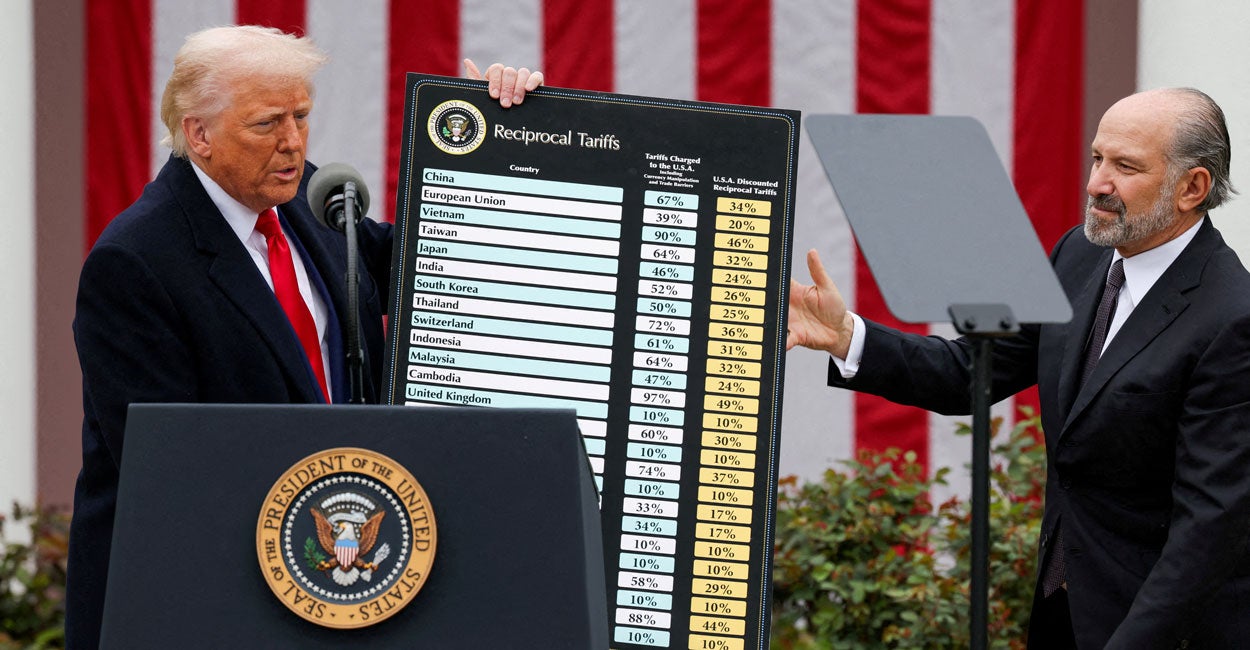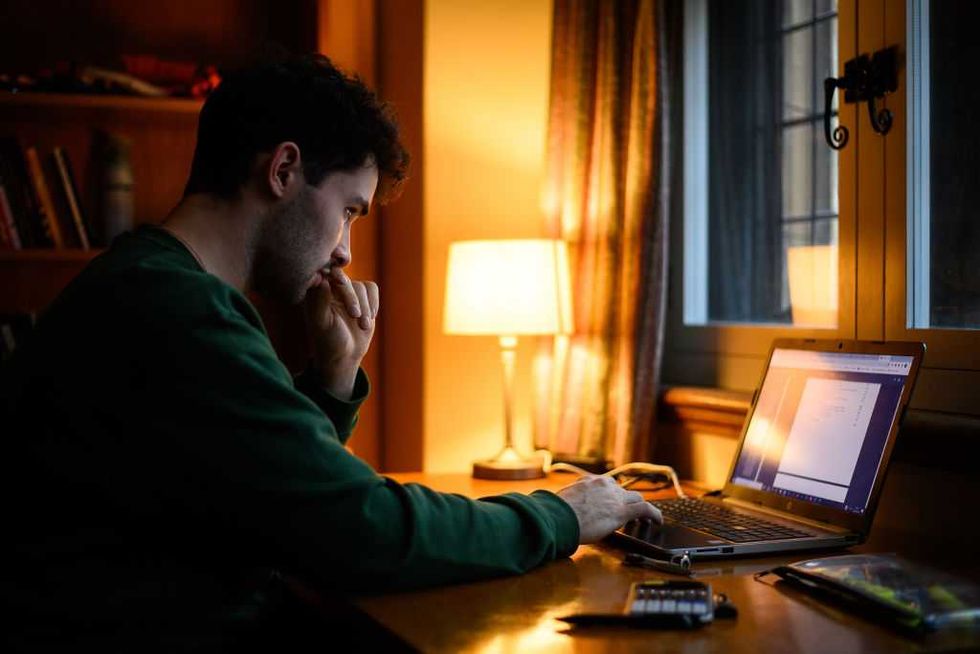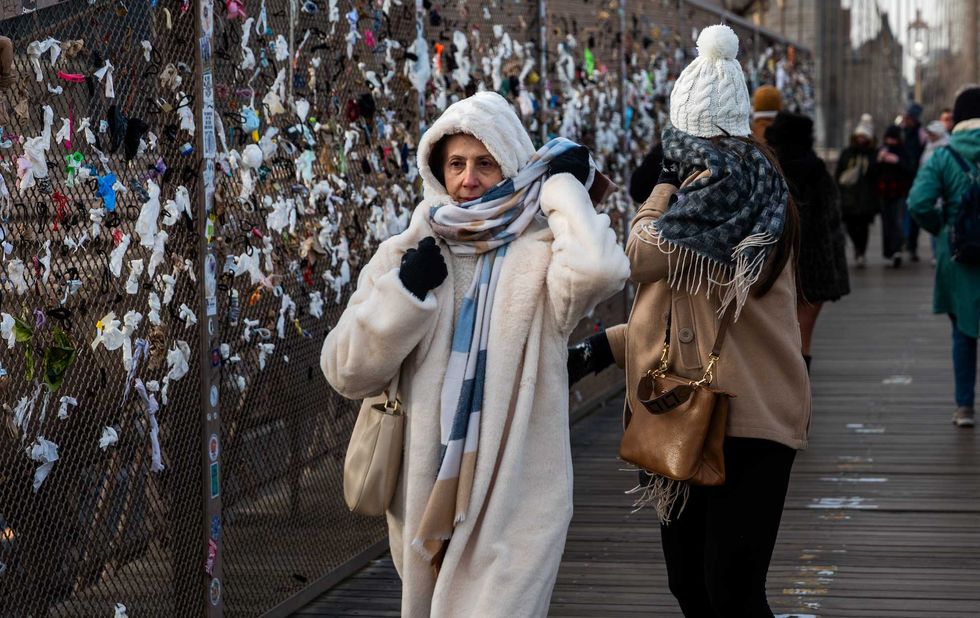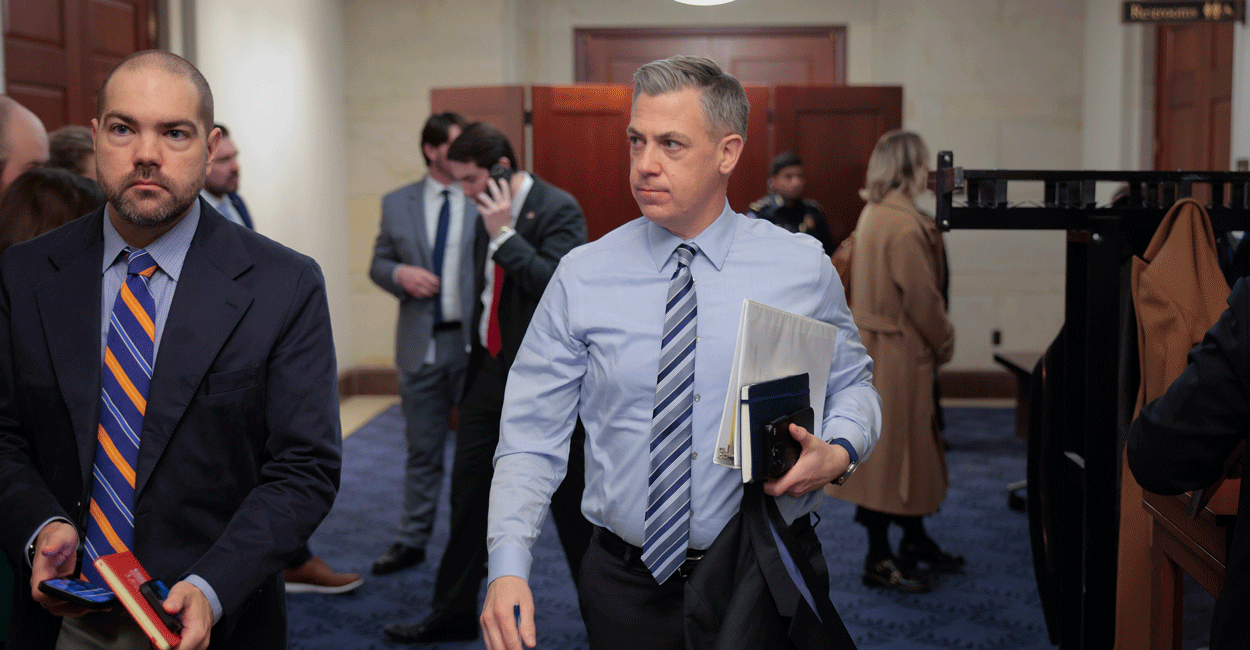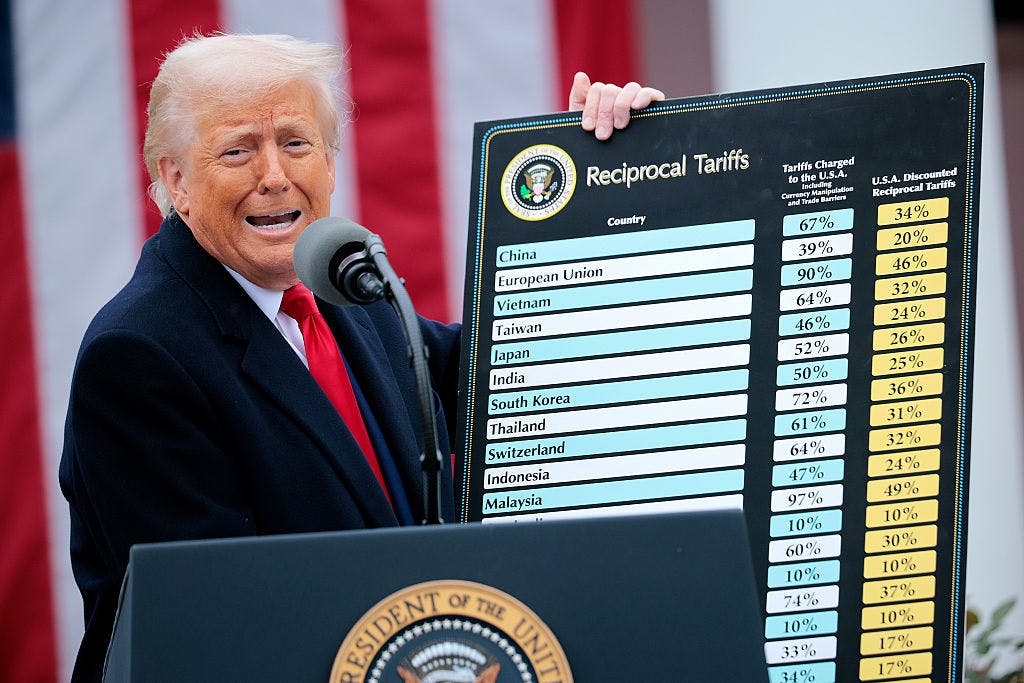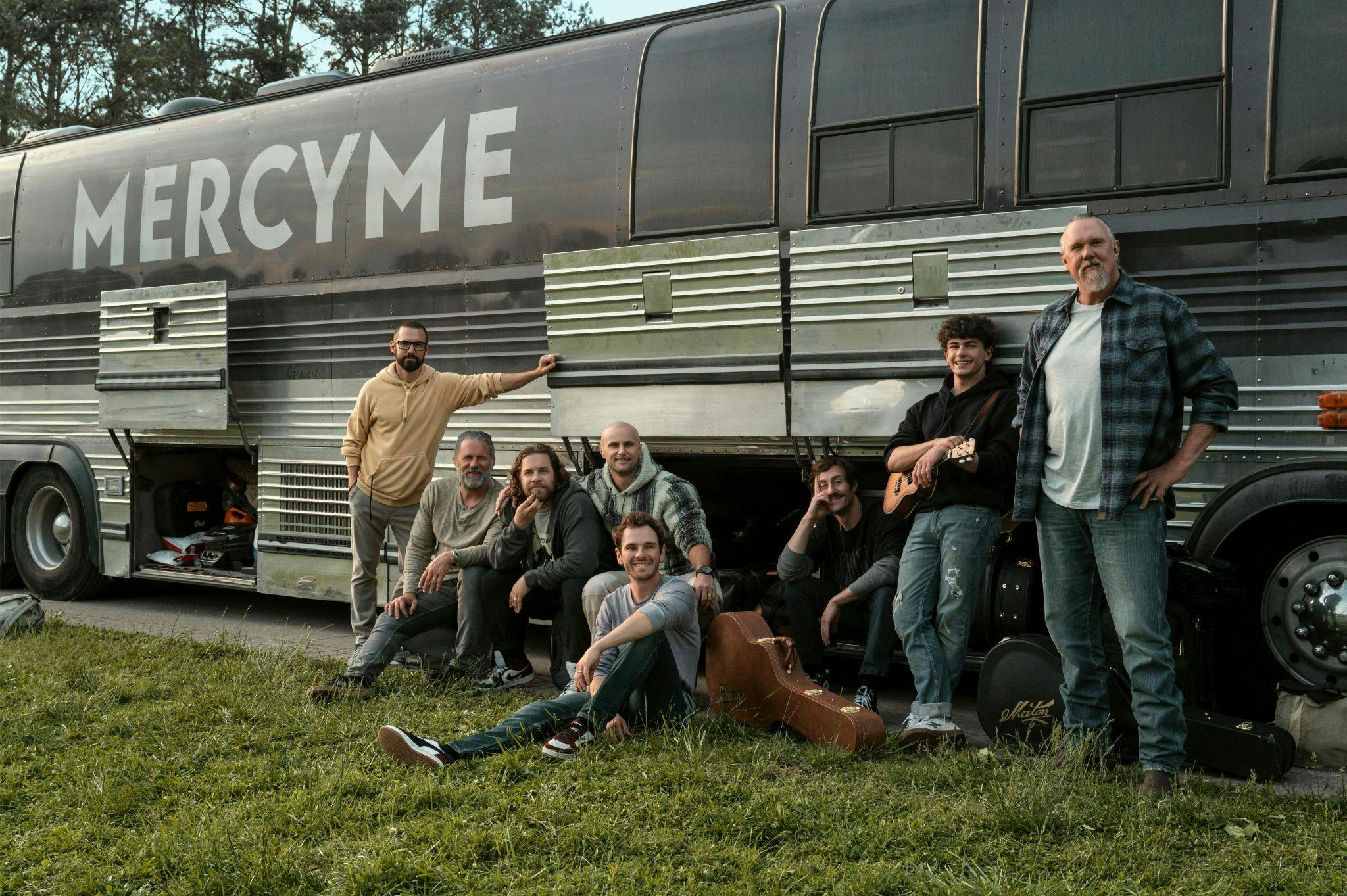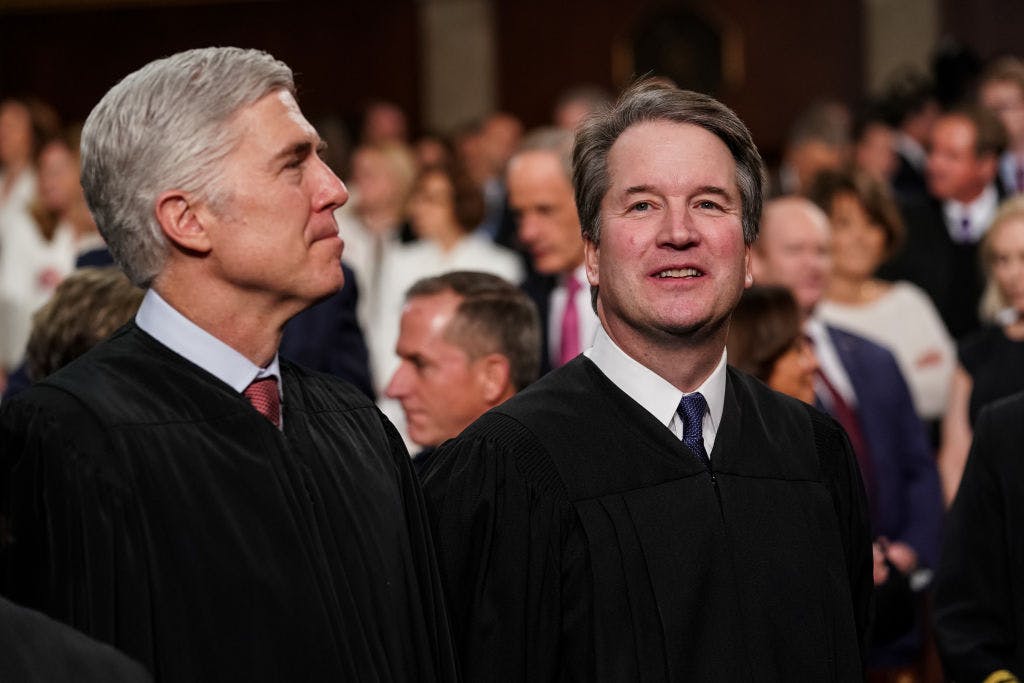2 Conservative Journalists Report on the War Against ICE in Chicago

This is an interview Tony Kinnett conducted with Julio Rosas and Nick Sortor. The transcript has been lightly edited for clarity.
Live Your Best Retirement
Fun • Funds • Fitness • Freedom
Tony Kinnett: We go over now live from beautiful Chiraq [Chicago], Illinois, JB Pritzker’s playground, to talk to two of the finest riot reporters that we know: Julio Rosas of The Blaze and Nick Sortor, he of the No. 1 public enemy in Portland variety. Gentlemen, thanks for hopping on.
Julio Rosas: Yeah, thanks for having us, Tony.
Nick Sortor: Appreciate you having me.
Kinnett: Let’s dig right into the specifics of the current [Immigration and Customs Enforcement] operational details here. I know there’s a lot of movement on the ground with protesters appearing to use vehicles in order to stall ICE agents or Border Patrol agents. And then these crowds show up right after. You guys track a lot of the crowd movement. How coordinated are the traffic kind of accident situations to these instantaneous protest groups descending on them?
Rosas: Well, it just depends on the city, right? I mean, Chicago has proven itself to be very confrontational. They make no qualms about that. I mean, they’re certainly not afraid of Chicago police in general. So, naturally, that was going to translate over to [Department of Homeland Security].
That is something similar that we’ve seen in Los Angeles as well with using cars and getting people as quickly as they can to an operation. So, they’re learning from each other. And I think Nick, he’s certainly seen some of that where they take cues from what works in places like Portland or New York or Boston, even kind of popped off the other day.
It’s just a continuation of what we’ve seen. And it’s because that they see that deportations are not stopping. So, naturally, they’re going to escalate their tactics.
Kinnett: Nick, what do you think? Is there a rise in the car maneuvers and kind of the instant protest, “we shall not be moved,” descending on the groups there?
Sortor: Yeah, I think there’s a big problem with people out here, especially in Chiraq, being emboldened because the courts keep shutting down every single maneuver that this administration tries to make. So, they feel like they’re untouchable. I mean, just a little bit behind me here, you may not be able to see it because they shut all the lights off. I don’t know if that’s because of the “Schumer Shutdown” or what it is, but all the lights have gone out for whatever reason. They had to take down the fence that’s outside the ICE facility here.
Why? I don’t know how the fence could possibly be unconstitutional. I don’t remember that part of the Constitution. Maybe somebody can enlighten me on that. But, you know, they did this just ahead of this No King’s Day protest that is scheduled for here as well as many other cities across the country.
And they’re not allowed to deploy the National Guard. The judge is like, well, you can federalize them, but you can’t deploy them. I’m not really sure what the National Guard is for if you can’t use it to guard national properties, such as the ICE facility out here.
What am I missing?
Kinnett: That’s exactly what I wanted to ask both of you, at least on the frame of when states’ laws and rulings and then federal laws and rulings are allowed to apply. And Julio, that kind of brings an interesting point:
If the National Guard, under federalized condition, are not allowed to be stationed at federal buildings, how then is Illinois and the Cook County judge under JB Pritzker’s direction allowed to ban federal law enforcement from inside courtrooms and facilities in order to make arrests on illegal immigrants? Why are we playing by a double standard here?
Rosas: Because we’re in a clown world? I mean, no, but seriously, because I hate to go back to the fence, but the reason why that’s so important is because now that there’s no longer a fence, the DHS and the feds are going to have to put way more agents on the line to prevent people from causing any disruption or any damage.
We were seeing that prior to the fence installment. And so, that’s why the president wanted to send in the National Guard because, OK, they’re a force multiplier in addition to the fence, but now they can’t have the National Guard, they can’t have the fence. So, they’re kind of back to square one.
And so, now, instead of those agents being out there making arrests, they’re going to have to be doing guard duty. OK, that is something that they can do, but they’re being hamstrung at every corner, and that’s why it’s very concerning that you have the courts and the city and the state leadership in Illinois and elsewhere basically having an insurrection, like an actual insurrection. Like, this is not just the street activists, right? They are being helped by the leadership, by them antagonizing it and making decisions to make the situation worse.
Kinnett: I mean, it’s kind of the ultimate flip here. You have the Illinois authorities doing everything they can to assist the protesters and the rioters by taking down the fence. And then they’re doing everything they can to essentially put federal law enforcement and civilians in Chicago at risk. And again, it’s a very sketchy situation. Nick, I didn’t realize they had all the fencing taken down along those lines.
With the court system, have you seen any Antifa individuals essentially right back out on the streets after arrest? I know that there have been judges releasing people back out onto the streets.
Sortor: Well, I mean, Chicago and Portland are very similar in that regard, where you, unless you are a conservative journalist, you’re pretty much just turned around immediately and thrown back out on the street. The average time is about two hours, right? But for me, it was six. We’ll talk about that some other time.
I’m waiting for a judge to make some sort of order now to unlock the front door of the ICE facility, because that’s where we’re headed at this point. Like, I don’t know, you can’t have a fence? We can’t have a fence outside of the ICE facility? I mean, this is clown world, guys. Come on!
Kinnett: So, I want to move forward to the other side of clown world here to the delivering of materials. And I’m not talking about clown horns and red noses. Of course, there’s been video footage showing U-Haul and other unmarked vehicles dropping off riot supplies.
And this is right ahead of the No Kings protests. I’m not seeing people pass out posters and paint stirring sticks to tape them to. I’m seeing people hand out gas masks and these half trash cans and other heavy materials that are being used to bolster riot … essentially to outlast things like tear gas and pepper ball deployment.
Julio, are you seeing any of that? First of all, either of you, if you’ve seen any of that, let us know. But additionally, are you seeing Chicago police also start to use pepper balls and tear gas more as the crowds become unruly, or is that just federal agents?
Rosas: No, all those have been federal agents. It’s really weird because after they got that stand down order, after that defensive shooting, was it last week or the week before, the Chicago police are starting to show up to … they showed up yesterday during this confrontation that the federal agents had with people showing up after the scene of a car crash.
But they’re not equipped for riot duty. That’s the problem. So, it appears that the city leadership and the police chief and whatever, they’re ordering their guys to do the bare minimum and to show up.
Kinnett: To what, like show up and like check the meter like a meter maid?
Rosas: Kind of, yeah. So, when federal agents have to deploy tear gas because the situation has gotten so out of control that that’s what it requires, Chicago police are not able to do anything except have to walk away because they don’t have gas masks. They don’t have helmets. They don’t have the extra-long police sticks to do crowd control. And to me, at this point, it’s like, “Well, why don’t they have those things right now?” because this has happened multiple times already. And so, to me, it just seems like they’re setting up the police to fail so that they can then blame the feds by saying, “Oh, well, they tear gas our cops.”
It’s like, yeah, because you guys aren’t doing your job.
Kinnett: Nick, I want to pitch that over to you. What do you think that federal officials are looking for as kind of a way to mitigate the tear gassing of Chicago police that aren’t showing up with gas masks? I guess they’re showing up with career day balloons or whatever.
Sortor: If the Chicago police are going to show up and not do anything about the standoff from these … this is a little bit different than Portland, just to be clear. We’re dealing with violent Latin American gangs that are out on the street here going head-to-head with ICE agents.
Kinnett: Well, cartels are openly putting out hits on federal agents.
Sortor: Right. So, I don’t think we have time to worry about the Chicago … if the Chicago police want to go out there so they can get their pictures and say, “Oh, look, we’re helping,” you know, I’m sorry. Like, go help over there again. We’re going to take care of the crowd.
The feds are going to deploy tear gas. And that’s the way it has to be because this is an incredibly volatile situation. I mean, you watched what happened just yesterday here in Chicago.
And I feel like this is going to happen more and more and more, especially with the judges that know what they’re doing. Let’s be clear: They know that these rulings are going to be overturned on appeal, but it’s a stall and delay tactic because, as Julio said, the more agents you have guarding the facilities here and defending themselves, the less Title VIII work you can do, the less deportation work that you can do.
And that is the strategy. And these activist judges are playing right into it. JB Pritzker knows this as well. This is part of his play. He’s doing the bare minimum in terms of sending out just enough units to say that they are doing something and therefore, we don’t need National Guard because the state’s responding. That’s the argument.
These guys are restrained. I mean, I’m standing in this parking lot right now outside. You’ve got a couple of state troopers out here at the moment. You see these clips of them ordering people out of the street. And when they don’t vacate the streets, then the state police will do something about it. But that is like every once in a while. This is not a recurring thing.
It seems to be at certain times of the day. They’ll do something. They’ll get their photos. It’ll be posted online. Then they’ll retreat.
Kinnett: Well, of course, Julio, we’ve talked about this quite considerably. Well, actually, all three of us, when we were at the DNC last year and we watched not just the left-wing media, but also some of the right-wing media not covering …
Sortor: Why are they allowed to have a fence? Why are they allowed to have a fence at the DNC, but we can’t have one at the ICE facility? You’ve got to be kidding me.
Kinnett: Oh, man, that’s a really good point. I didn’t even write that down on my interview notes. Julio, I guess other than having the DNC organize security at the ICE facilities, what are a couple of things here right at the end that you are keeping an eye on, keeping an eye out for over the next couple of days?
Again, I know you both approach it from different ways, especially, Julio, kind of a military circumspect kind of view from your time with the Marines.
What are you going to be looking out for over the next couple of days?
Rosas: Well, I mean, it’s not even just the next couple of days, but it’s really for the next three years. And like I said at the beginning, deportations aren’t stopping. Enforcement isn’t stopping. It’s not really slowing down, even in spite of the judiciary’s attempt to slow it down. So it’s all about escalating their tactics. I asked an Antifa guy in Portland, when I was up on the roof, I said, “Did you stop the deportations?” And the guy had to admit, no, he did not.
And so, OK, so then what are you going to do? So when you’re in that position and you know you’re losing and even the public support for deportations of everybody, regardless if they have an enhanced criminal record or not, it’s still in the majority. Right? And that’s new. That’s a recent development because of the border crisis from the past four years. So, they know they’re on the losing side of this. And so, their only recourse in their eyes is to escalate their tactics. And so, that’s why it’s not going to stop with car rammings. It’s probably going to go into bombings.
It’s probably going to go into shootings.
Sortor: And that’s not unprecedented, right, Julio? I mean, you we saw this in Portland in 2020 where they were literally lobbing explosives over the fence over there.
Rosas: Yeah, it was also in Washington in 2019, and then we just had the shooting in Dallas.
Kinnett: Well, of course, you saw the siege in Portland in which they were taping things like pennies and small like tack nails to fireworks that they were shooting at the ICE facility in Portland.
Rosas: Yeah. And so, they know their backs are against the wall. And when you have radicals in that position, they get dangerous. So, that’s my concern.
Things might calm down once it finally gets below 32 degrees in the Chicago area. And, you know, it kind of cools things down for a bit. But it’s just going to be like fighting season in Afghanistan. It’s going to start right back up again as soon as the conditions are conducive for that.
Kinnett: Nick, I know you’ve obviously spent a lot of time focusing on how the executives in any kind of a jurisdiction are giving certain orders to their police departments. Of course, the question in the Portland City Council getting involved with their police department right before you were wrongfully arrested.
What are you going to be keeping an eye out for over the next couple of days? And maybe, like Julio said, over the next three years, regarding kind of the frame of coverage that you’re looking into, regarding kind of jurisdictions?
Sortor: Well, I mean, in terms of Portland, I think Saturday with these no Kings Day protests that are going on, we’ll be able to tell a lot about the direction that the Portland police and the city of Portland is going to go based on how they handle it.
Unlike here in Chicago, where this is quite—Julio has been here, so he sort of knows—but to get to the entrance of the ICE facility, it’s quite a ways down this road. And if you try to walk down this road, you’re going to get yelled at through a megaphone, right? And they will arrest you for that.
In Portland, you can walk within feet, within 10 feet of the building, right? So, if you have, say, a couple thousand people crammed into that area …
Kinnett: Right, it’s a street front kind of building.
Sortor: Right. Not here. This is a little bit different. This is recess. So, I think that’s going to be a big test for the city of Portland and the Portland police. Are they going to do crowd control? We know that they can because when [Homeland Security Secretary] Kristi Noem came out there, and I was embedded with her last week out there in Portland, Portland police went out because they didn’t want her to be able to take pictures and show the mayhem that happens in the street outside of the ICE facility. So, they shut down like two blocks around it, right? So, that there was only a little place for people to stand so that when pictures were taken, and there’s only this little sidewalk for people to stand on, they can say, “Oh look, there’s nobody actually out here.”
You know, if they can be serious and shut down those two blocks and cordon people off so they can scream, yell, and whine over in a certain area, I think that, you know, might be a signal for a good direction in Portland, a better direction anyway. But I don’t see that happening.
I think they’re just going to let them run loose.
Kinnett: Just one very important last little question here. I know that, of course, the three of us have done some kind of undercover work in the past where you’ve kind of embedded in different places in order to move around with the crowd, see what individuals are up to, report that to the American people.
Unfortunately, in Portland, that often means getting completely naked and riding a bicycle around. So I guess I’m asking both of you, do you have any plans to strip down and ride bicycles around the area?
Rosas: I’m only in my free time.
Sortor: Dude, I’m a little bit worried. I know airborne STDs are supposedly not a thing, but I’m pretty sure Portland may have changed that last weekend, unfortunately. So, I made sure that there were no emergency naked bike rides before I head back this weekend.
Rosas: Yeah, you certainly needed a gas mask for that one.
Kinnett: Well, wishing that you guys are not only, of course, safe while you’re in Chicago, but also that you keep away from any monkeypox outbreaks.
Julio Rosas over at The Blaze. Nick Sortor, also appreciate you taking a couple of moments here. We’ll include all of your socials and links down in the description below. Thanks again for hopping on.
The post 2 Conservative Journalists Report on the War Against ICE in Chicago appeared first on The Daily Signal.
Originally Published at Daily Wire, Daily Signal, or The Blaze
What's Your Reaction?
 Like
0
Like
0
 Dislike
0
Dislike
0
 Love
0
Love
0
 Funny
0
Funny
0
 Angry
0
Angry
0
 Sad
0
Sad
0
 Wow
0
Wow
0


